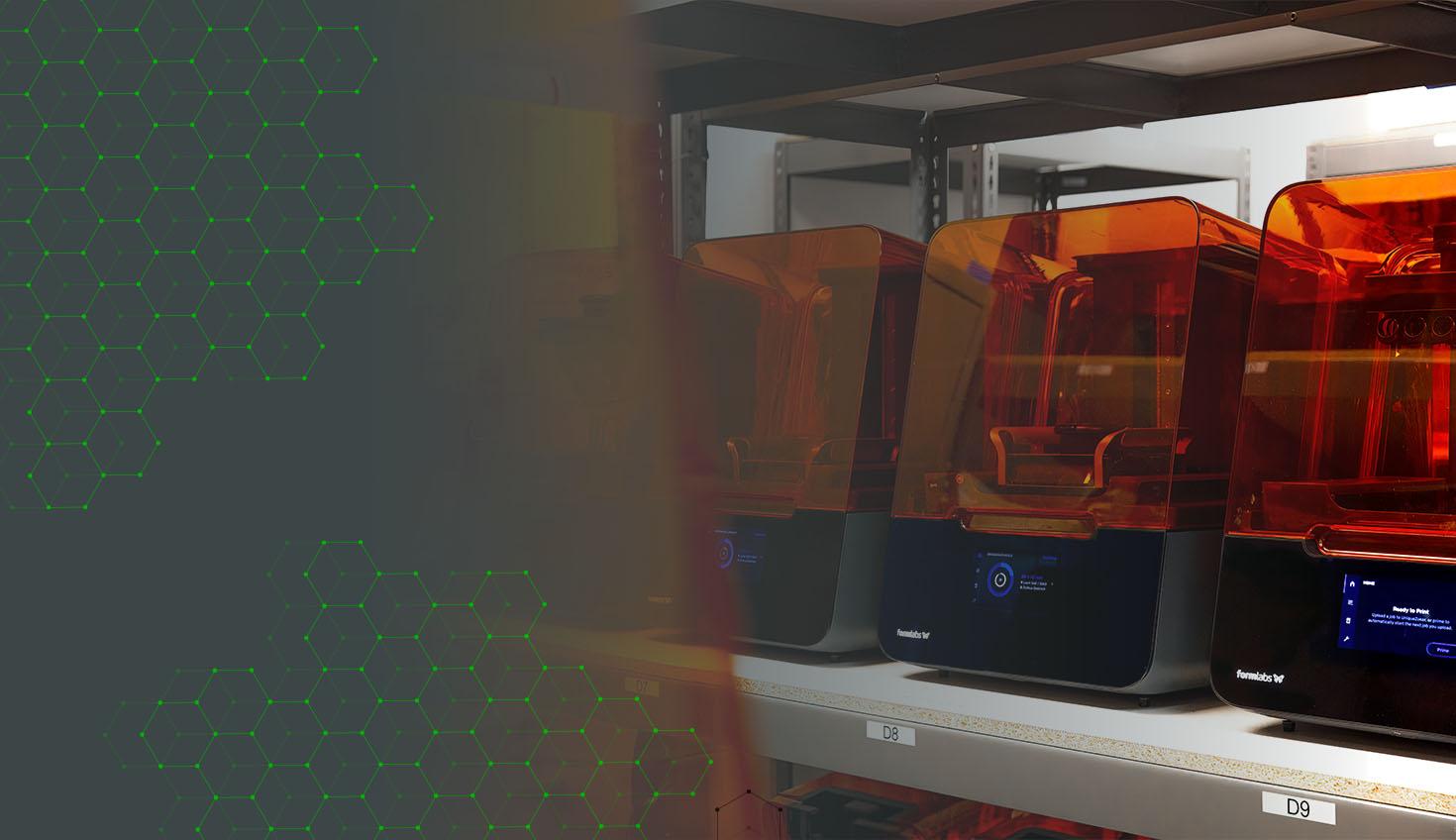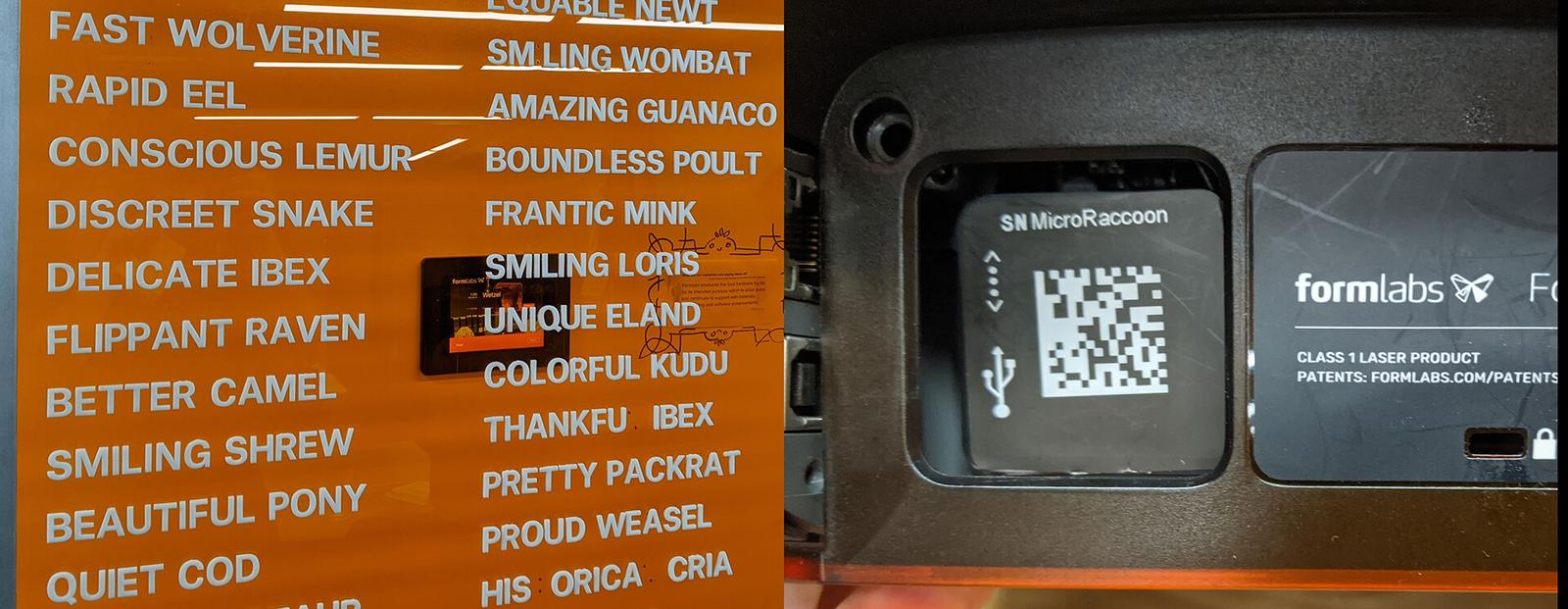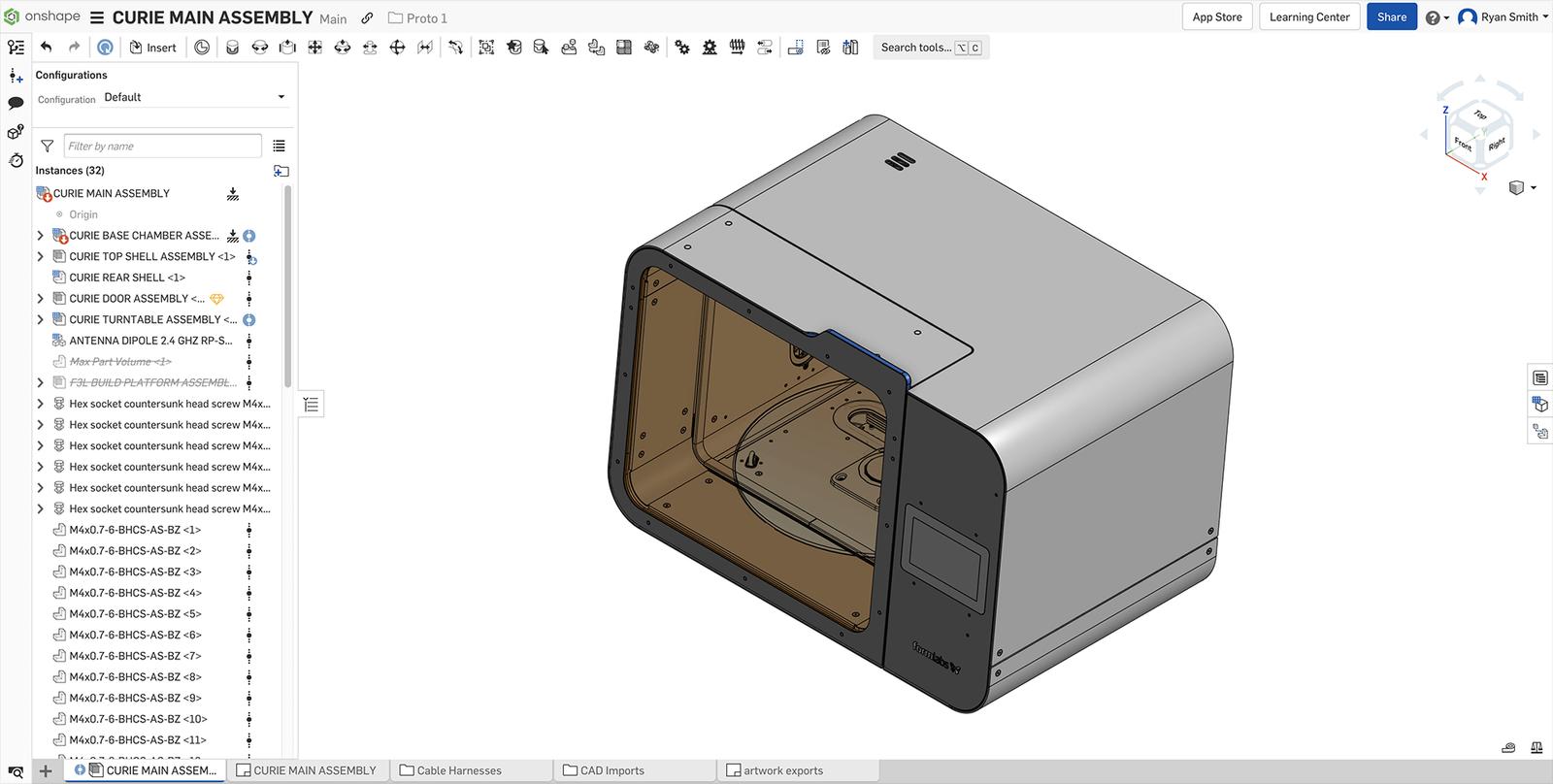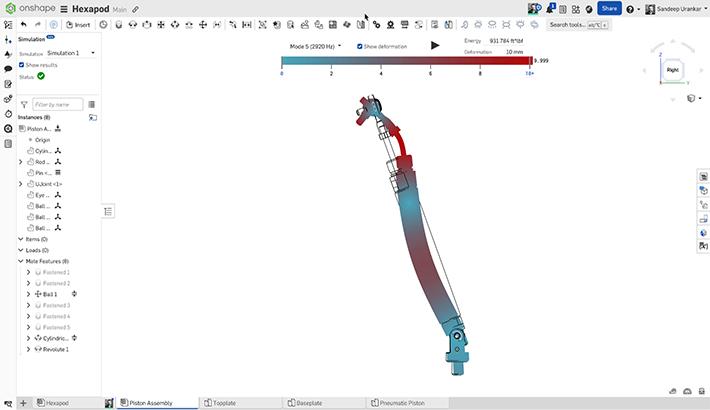
4:04
Substituting cute nicknames for product serial numbers must lead to some funny customer conversations with Formlabs tech support.
Formlabs, a leading global developer of industrial 3D printers, names every printer with a randomly chosen animal and adjective. Some recent printer names include “Pretty Packrat,” “Proud Weasel,” and “Smiling Shrew.”
Animal kingdom monikers aside, the Formlabs mission is to enable “anyone to make anything.” Its family of printers and post-processing solutions are used not only for R&D and rapid prototyping, but also for small-batch custom production, making jigs and fixtures, and to quickly resolve supply chain problems (i.e. making machine replacement parts on demand versus waiting for them to be shipped from overseas).
Instead of serial numbers, each Formlabs printer is randomly assigned a nickname containing an adjective and an animal. At left, is a list of whimsical printer names. On the right is a closeup of the back of a printer where users can scan a QR code for technical help.

The company’s customers include Ford, Google, New Balance, Gillette, Lush Cosmetics, Sony and Hasbro, which uses 3D printing to manufacture its on-demand “Selfie Series” action figures.
“All our printers are readily accessible, relatively inexpensive, can fit on a desktop, and can ramp up the manufacturing process quickly on a modular level,” says Matt Lipsitz, Head of Sustaining Engineering and Quality for Formlabs. “What really excites me is how Formlabs is making mass customization truly accessible across a wide range of industries.”
Formlabs Dental Resins and printers are now being used by dental labs and practices to quickly produce biocompatible surgical guides, splints, clear aligner models, and full dentures. In the healthcare industry, Formlabs BioMed Resins and printers are used for a variety of biocompatible applications, including models for medical implant sizing.
“The world is moving from automated manufacturing that makes the same exact thing many, many times over to automated manufacturing that can make different things many times over – but with comparable efficiency and relatively little investment,” Lipsitz says. “And Formlabs is at the forefront of bringing that kind of mass customization to industry.”
Streamlining CAD Collaboration Between Globally Distributed Teams
Formlabs uses Onshape’s cloud-native CAD and Product Data Management (PDM) platform to streamline collaboration between its engineering teams in Europe, Asia and the United States.

To design its 3D printers and post-processing machines, Formlabs relies on Onshape, a cloud-native product development platform that combines CAD with built-in Product Data Management (PDM) and real-time collaboration tools. Formlabs switched to Onshape from its old file-based CAD and PDM systems in 2019 because its legacy on-premise software slowed down its collaborative design process.
Headquartered in Massachusetts, Formlabs also maintains facilities in Ohio, North Carolina, China, Germany, Hungary, Japan and Singapore.
When multiple engineers are working on the same file-based CAD model, they are required to check their work in and out of a PDM “vault” to prevent version control issues – denying visibility to colleagues until they are finished editing. File-based data management platforms force serial workflows, requiring engineers to work one-at-a-time instead of concurrently.
In contrast, Onshape’s cloud-native PDM allows multiple engineers to simultaneously work on the same product model, seeing each other’s design changes (or proposed design changes in experimental branches) as they happen or asynchronously. A comprehensive Edit History tracks every design change, who made them and when – allowing the team to instantly revert back to any earlier stage of the design if desired.
“In my current role, I need to collaborate with people globally. My colleagues or partners might be in the Far East, Europe or across the United States. So I need to be able to show them the latest CAD model in a matter of seconds – and it’s imperative that we’re all working from that same single source of truth,” Lipsitz says.

Formlabs 3D printers empower companies to rapidly scale up onsite manufacturing, enabling on-demand production of parts to safeguard against supply chain issues.
According to Lipsitz, the same Onshape CAD collaboration features that help improve internal communication also apply to streamlining work with external contractors and manufacturing partners.
“Onshape really reduces the barrier to onboarding engineers,” Lipsitz says. “The fact that it's based in the cloud means that we don't need to install any software, and we can add a new user with the click of a button, as opposed to having to install and link to a PDM system, and then teach somebody how to access it. Onshape runs right in your browser so somebody is good to go and can start designing parts right away.”
“We recently realized these same benefits on a project with an overseas supplier who was willing to adopt Onshape for joint engineering development of a new product. The ability to integrate an external partner into our engineering toolset shifted the traditional relationship from a transactional one to a collaborative one,” he adds.
Cloud-Native CAD Collaboration
To learn more about how Formlabs uses Onshape's collaboration tools to accelerate its time-to-market, visit the Onshape Case Studies page.
Latest Content

- Case Study
- Consumer Products
BOA Technology: Redefining Outdoor Fit Equipment with Cloud-Native Onshape
11.03.2025 learn more
- Blog
- Aviation, Aerospace & Defense
- Branching & Merging
- Custom Features
- Learning Center
- Onshape Government
Why Aerospace & Defense Teams Choose Onshape for Product Development
12.18.2025 learn more
- Blog
- Evaluating Onshape
Cloud-Native CAD 2025 Wins: Revenue Growth, Real-Time Collaboration, Unified CAD-CAM
12.17.2025 learn more
- Blog
- Becoming an Expert
- Assemblies
- Simulation
Mastering Kinematics: A Deeper Dive into Onshape Assemblies, Mates, and Simulation
12.11.2025 learn more



